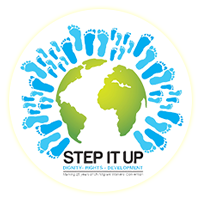Domestic work is an important occupation for millions of individuals, accounting for up to 10 per cent of total employment in some countries. The trend over the past decades has been a growing prevalence of migrants among domestic workers with the overwhelming majority of these workers being women. Migrant domestic workers are at heightened risk of certain forms of exploitation and abuse. At the heart of their vulnerability is isolation and dependence, which can include the following elements: being far away from family, lack of basic support systems, unfamiliarity with the language and culture, lack of knowledge of national labour and migration laws, dependence on the job and employer because of migration-related debt and/or sponsorship systems, legal status, employers restricting freedom of movement, employers holding passports and other documents, and reliance of families back home on remittances. Women migrant domestic workers face additional risks related to their gender, including gender-based violence. These risks and vulnerabilities are further aggravated for migrant domestic workers who are undocumented, not least because they often face the risk of deportation if they contact State authorities to seek protection from abusive employers.
Recent posts in this section
Documents from the Committee on Migrant Workers' General Discussion marking the 25th Anniversary of CMW
Last 8 September 2015, the UN Committee on the Protection of the Rights of All Migrant Workers and Members of Their Families (the Committee) organized a half-day general discussion to mark the 25th anniversary of the adoption of the International Convention on the Protection of the Rights of All Migrant Workers and Members of Their Families. The general discussion was a public meeting in which representatives of States, United Nations bodies and specialised agencies, civil society and other relevant organisations as well as individual experts are welcome to participate.
The panel discussion focused on the multiple human rights abuses faced by migrant workers, and challenges for States on how to best address these issues in the context of migrant workers in the Gulf, undocumented children in the Americas, and irregular migration flows in the Mediterranean. Each of these discussions underlined the importance of an agreed international human rights framework, including stepping up ratifications of the Convention. This discussion also included perspectives, including best practices, by States parties and non-States parties on how to address migration-related issues and the role of the Convention in this regard.
Click here for the full postInvitation for Panel Event: Protecting the Liberty of Migrant Children & Families
When: September 30, 2015 6:00pm – 8:00pm
Where: 2nd Floor, 777 UN Plaza, at First Avenue and E. 44th St. New York
Every day, all around the world, migrant children and their families are detained simply because they lack the proper documents. These children and families often undertake perilous journeys and are met with xenophobia, violence and—increasingly—with detention despite having committed no crime and without being a threat to others.
There is now overwhelmingly clear guidance from the United Nations system that the immigration detention of children is a violation of rights to liberty and family life. Non-custodial, community-based alternatives to detention (ATD) are increasingly being implemented in a variety of country contexts. These ATD fulfill the best interests of the child and allow children to remain with their family members and/or guardians, respecting the fundamental right to liberty, while their immigration status is being resolved.
Click here for the full postFinland ratifies the Domestic Workers Convention (No. 189)
From the ILO
Finland is the 17th ILO member State and the fifth European country to ratify this instrument, which seeks to improve the working and living conditions of tens of millions of domestic workers worldwide.
Click here for the full postSwitzerland ratifies the Domestic Workers Convention (No. 189)
From the ILO
On 12 November 2014, the Government of Switzerland deposited with the International Labour Office the instrument of ratification of the Domestic Workers Convention, 2011 (No. 189). Switzerland is the 16th ILO member State and the fourth European country to ratify this instrument, which seeks to improve the working and living conditions of more than 53 million domestic workers worldwide.
Click here for the full postMigrant Workers 'Shouldn't Have to Be Tortured to Have Work'
Solidarity Center
19 September 2014
 Three times each month, dozens of women gather in dusty courtyards in rural towns in Manikganj, Dinazpur or other districts across Bangladesh to learn all they can about the only means by which they can support their families: migrating to another country for work.
Three times each month, dozens of women gather in dusty courtyards in rural towns in Manikganj, Dinazpur or other districts across Bangladesh to learn all they can about the only means by which they can support their families: migrating to another country for work.
In leading these information sessions, the Bangladesh Migrant Women’s Organization (BOMSA) seeks to assist women in understanding their rights—from what they should demand of those who facilitate their migration, to the wage and working conditions at the homes in Gulf and Asian countries where they will be employed as domestic workers.
Click here for the full post

